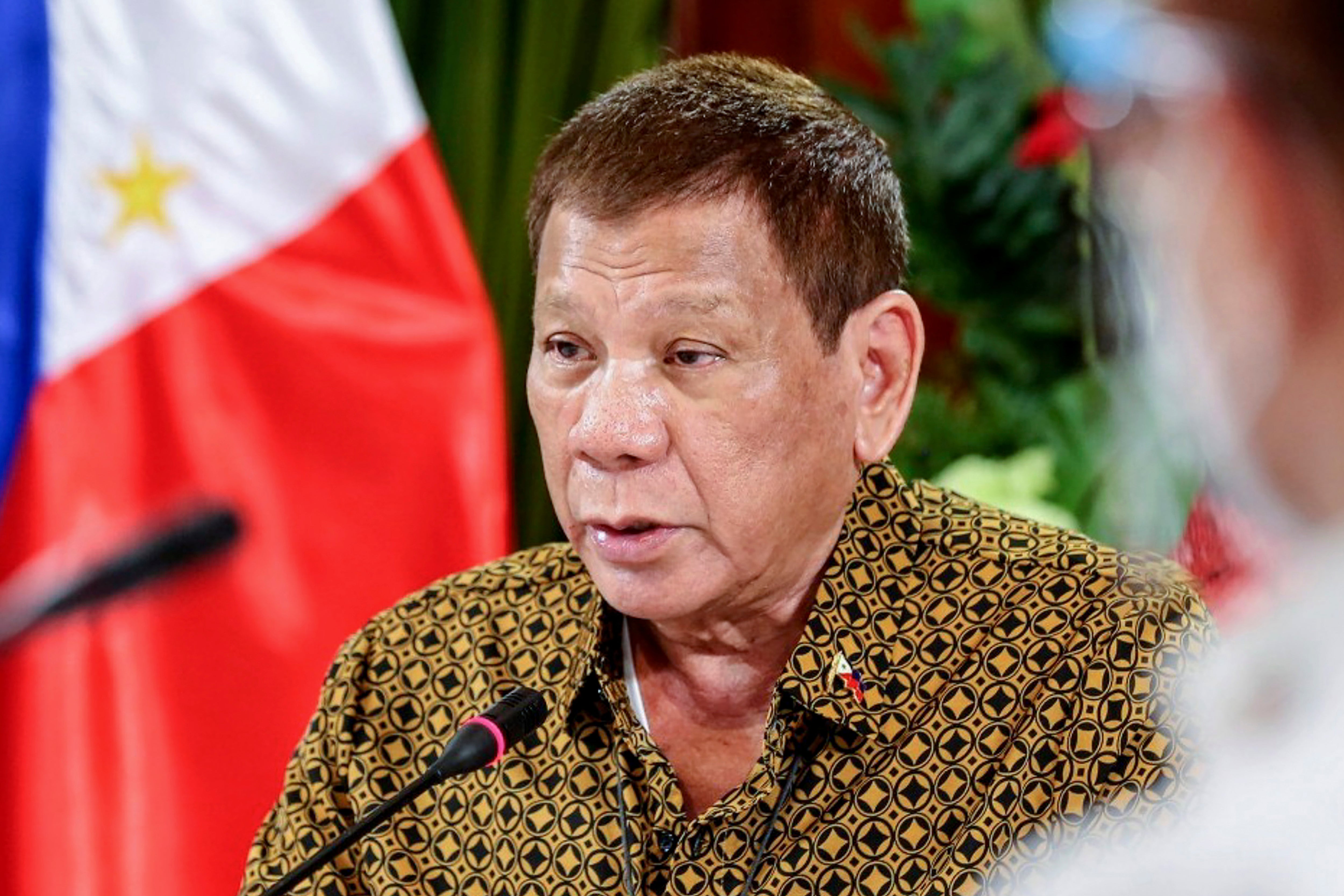Duterte rules out Christmas truce with communist rebels
Philippine President Rodrigo Duterte has ruled out any cease-fire or resumption of long-stalled peace talks with communist guerrillas and renewed a vow to destroy the insurgents in his last two years in office

Your support helps us to tell the story
From reproductive rights to climate change to Big Tech, The Independent is on the ground when the story is developing. Whether it's investigating the financials of Elon Musk's pro-Trump PAC or producing our latest documentary, 'The A Word', which shines a light on the American women fighting for reproductive rights, we know how important it is to parse out the facts from the messaging.
At such a critical moment in US history, we need reporters on the ground. Your donation allows us to keep sending journalists to speak to both sides of the story.
The Independent is trusted by Americans across the entire political spectrum. And unlike many other quality news outlets, we choose not to lock Americans out of our reporting and analysis with paywalls. We believe quality journalism should be available to everyone, paid for by those who can afford it.
Your support makes all the difference.The Philippine president has ruled out any cease-fire or resumption of long-stalled peace talks with communist guerrillas and renewed a vow to destroy the insurgents in his last two years in office
President Rodrigo Duterte made the remarks Monday night after the military refused to recommend any cease-fire traditionally observed by troops and the New People’s Army rebels during the Christmas season. The military welcomed the president’s decision, saying the rebels were “notoriously insincere.”
Duterte’s increasingly hostile position reflects how far he has veered from his initial reconciliatory posture when he offered key Cabinet posts to left-wing activists to foster peace negotiations with the rebels after he took office in 2016. The cordial atmosphere eventually unraveled after government forces and the rebels accused each other of insincerity and of launching attacks against each other.
“There will be no cease-fire ever again under my term as president. For all intents and purposes, the cease-fire is dead,” Duterte said.
He also rejected the resumption of peace talks, saying he could be impeached or shot dead by the police and military if he agreed to what he said was a rebel demand to share power in a coalition government.
“No stupid president will allow it,” the tough-talking Duterte said. “It’s either I will be impeached or the military and the police will shoot me ... you will really be killed because you are a traitor of your country.”
There was no immediate reaction from the rebels.
The rebels have not publicly demanded a share in political power in talks with the Duterte administration, although the issue could possibly have been discussed if the negotiations did not collapse and both sides proceeded to tackle an agenda on political and constitutional reforms.
But Duterte said without elaborating that rebel “narratives" show that “you are out to share power. So, I have to destroy you."
Duterte and the military have also accused left-wing groups and legislators of conspiring with the rebels against his administration. The allegation has been rejected by left-wing activists, saying such “fabricated claims” endanger their lives and were designed to muzzle freedom of expression.
In 1992, the Philippines repealed a Cold War-era anti-subversion law that made membership in the Communist Party of the Philippines a crime. But Duterte argued that party members could still be prosecuted if they commit crimes like murder, arson and rape in fighting the government.
“I’m trying to sort out what we will do to you because you are now criminals,” Duterte said, linking one left-wing legislator to communist insurgents.
The legislator, Rep. Carlos Zarate, has denied that he and his party, Bayan Muna, were affiliated with the guerrillas and denounced the military’s “red tagging” of activists and even journalists critical of the Duterte administration.
The communist insurgency has raged mostly in the Philippine countryside for more than half a century in one of Asia’s longest-running rebellions. The military estimates about 3,500 armed guerrillas remain after battle setbacks, infighting and surrenders have reduced their forces in decades of fighting, although the rebels claim they have more fighters.